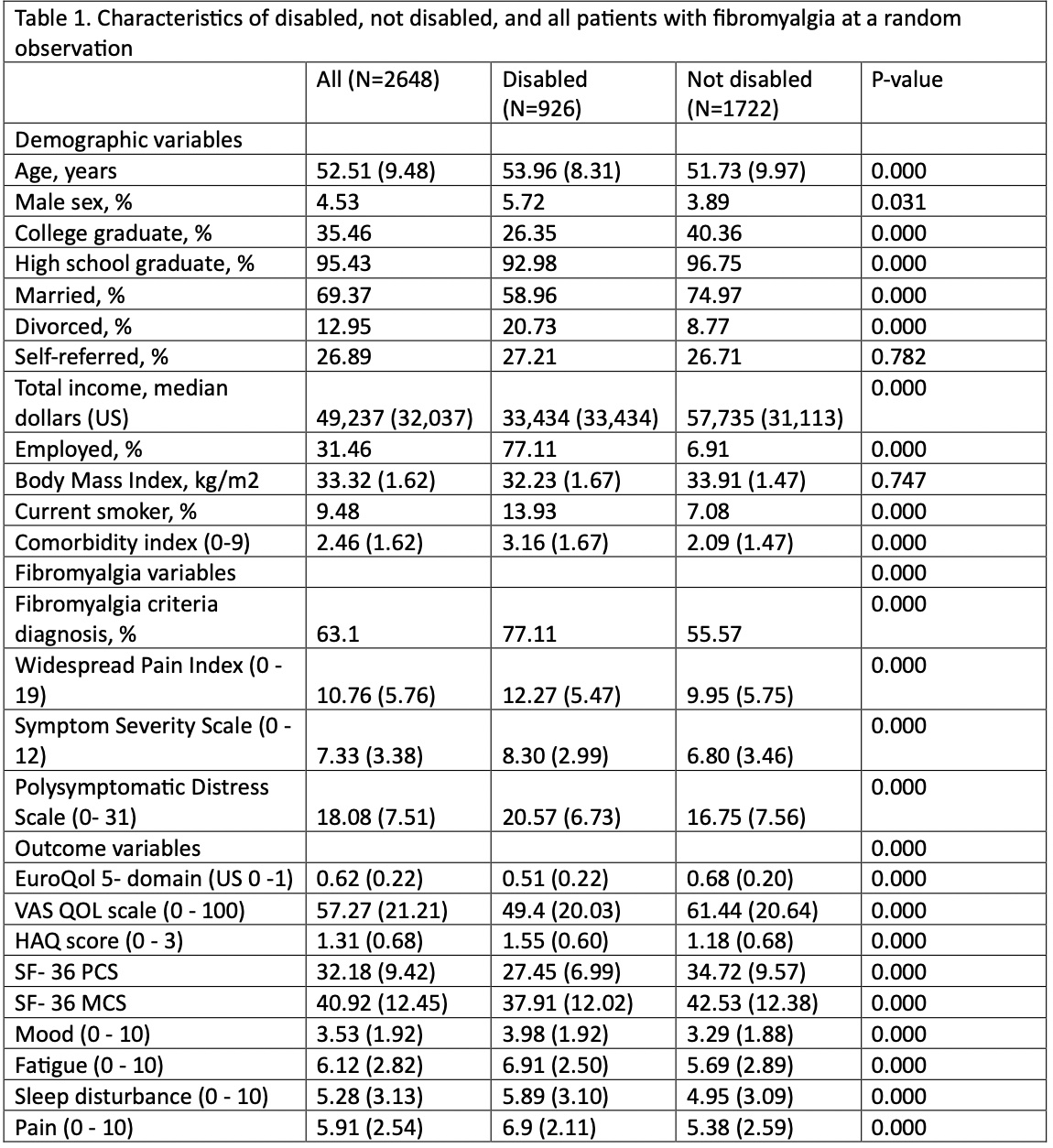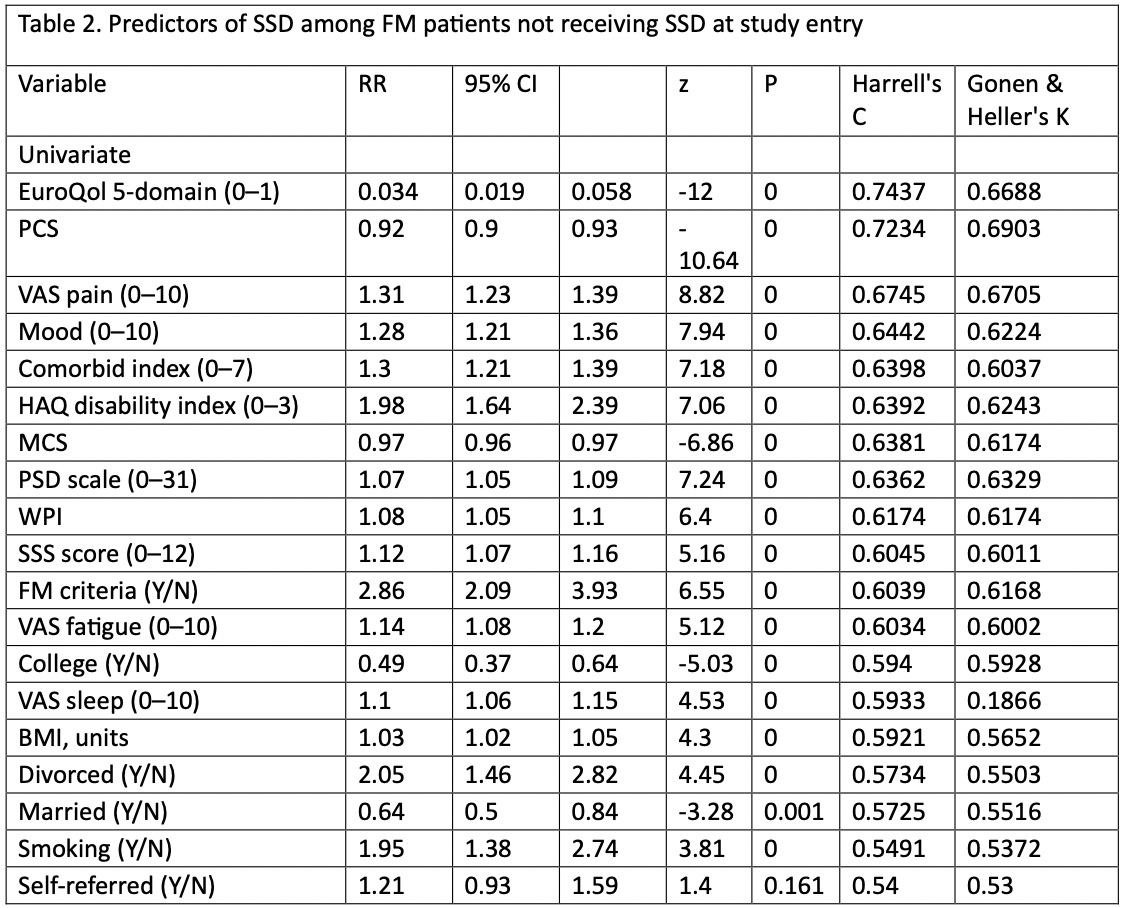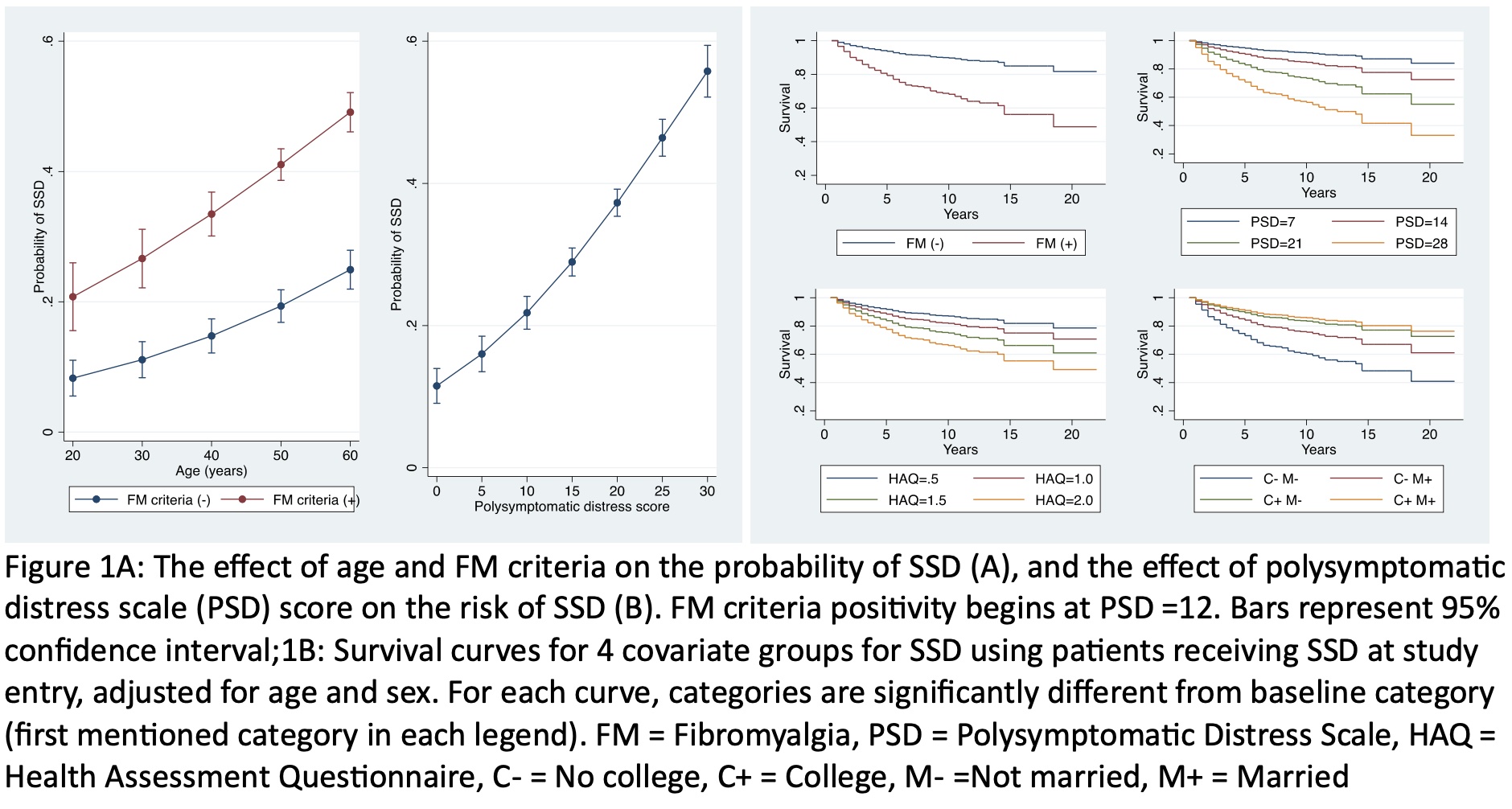Session Information
Date: Saturday, November 16, 2024
Title: Abstracts: Pain in Rheumatic Disease Including Fibromyalgia
Session Type: Abstract Session
Session Time: 1:00PM-2:30PM
Background/Purpose: Disability benefits are crucial for individuals unable to work due to debilitating medical conditions, commonly facilitated through programs like Social Security Disability Insurance (SSD) in the US and similar schemes globally. Fibromyalgia (FM) is recognized under immune and musculoskeletal disorders for SSD, but proving eligibility remains challenging. Mere symptom description is inadequate; applicants must delineate specific signs, physical findings, and functional impairments lasting more than 12 months. In our 2014 study using the Forward Databank, we assessed SSD approval rates among FM patients. We found lower approval rates compared to FM patients with rheumatoid arthritis (RA) and osteoarthritis (OA) and noted frequent loss of benefits due to FM’s fluctuating nature and perceived lack of “objective” disability evidence. Perceptions and care for FM have transformed in the last decade, driven by a deeper understanding of pain-centric disability syndromes, Long-COVID, and the growing acknowledgment of FM as a legitimate syndrome. To explore the impact of these advances on SSD, we replicated Wolfe et al.’s study through 2023 to assess the rates of SSD in patients with FM and assess its predictors.
Methods: At semiannual intervals spanning 25 years, we examined the cohort diagnosed with FM who had enrolled in the Forward Databank. To be included, participants had to meet specific criteria: 1) receiving a FM diagnosis from a rheumatologist upon registration without simultaneous RA or OA diagnosis; 2) falling within the age of 18 to 65 years; and 3) completing at least 2 assessments every 6 months. The control group comprised of participants diagnosed with FM with concurrent RA or OA. Baseline characteristics and the incidence of SSD were evaluated in both groups. The predictors for SSD in FM were assessed as well.
Results: During the study, 30.12% of those with FM received SSD. In comparison, SSD prevalence was 53.56% among RA with concomitant FM and 52.38% among OA. Univariate models identified sociodemographic factors and symptom burden as predictors of incident SSD in FM, with functional status (European Quality of Life index [EuroQol]) emerging as a b predictor. Patients meeting FM criteria had higher rates of SSD, however, the polysymptomatic distress index proved to be a significantly better predictor of SSD than a diagnosis based solely on meeting criteria.
Conclusion: The prevalence of SSD is high in FM but not higher than in those with RA and OA who meet FM criteria. Functional status variables emerge as the primary predictors of work disability. These findings mirror our prior work from ten years ago and followup is planned with newer criteria.
Reference: Wolfe, Frederick, et al. “Social security work disability and its predictors in patients with fibromyalgia.” Arthritis care & research 66.9 (2014): 1354-1363.
To cite this abstract in AMA style:
Gandhi S, Pedro S, Walitt B, Häuser W, Katz R, Michaud K. Social Security Work Disability and Its Predictors in Patients with Fibromyalgia: 25 Years of Followup [abstract]. Arthritis Rheumatol. 2024; 76 (suppl 9). https://acrabstracts.org/abstract/social-security-work-disability-and-its-predictors-in-patients-with-fibromyalgia-25-years-of-followup/. Accessed .« Back to ACR Convergence 2024
ACR Meeting Abstracts - https://acrabstracts.org/abstract/social-security-work-disability-and-its-predictors-in-patients-with-fibromyalgia-25-years-of-followup/



